National
All 6 people trying to replace Trudeau agree with him on almost everything
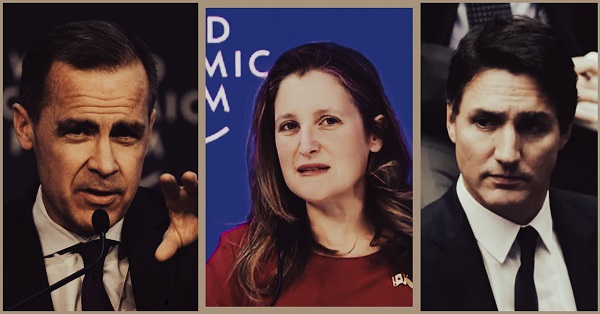
From LifeSiteNews
The Liberals are choosing a new face, but all six contenders seem likely to continue forcing Canadians down the same path as the PM they’re out to replace
With the Liberal leadership election just over a month away on March 9, Canadians are examining the six final contenders and questioning if they will bring change to the Liberal Party or carry on Prime Minister Justin Trudeau’s radical legacy.
The six contenders for Liberal leader and consequently, the next prime minister, are: Mark Carney, Chrystia Freeland, Karina Gould, Jaime Battiste, Frank Baylis and Ruby Dhalla.
While all the above candidates are promising to turn the Liberal Party around, their policies, both past and proposed, suggest little difference from the radical, anti-life and globalist agenda embraced by the Trudeau government.
Former Governor of the Bank of England Mark Carney
Carney appears to be the frontrunner for Liberal Party leader, with many mainstream outlets tacitly promoting him as a solution for Canadians, and numerous MPs having endorsed his campaign.
However, as LifeSiteNews has previously reported, Carney’s history suggests he would be an even more radical version of Trudeau.
While his impressive work experience certainly raises him in the estimation of Canadians, especially compared with Trudeau’s pre-political career as a drama teacher, the former Governor of the Bank of England, like Trudeau, openly supports abortion, the LGBT agenda and many of the tax and fiscal policies of the Trudeau government, such as the carbon tax.
Carney’s endorsement of energy regulations go even further than Trudeau’s, with the candidate having previously blasted the prime minister for exempting home heating oil from the carbon tax.
Carney has also been a longtime supporter of the globalist World Economic Forum, attending their infamous annual conference in Davos, Switzerland as recently as January 2023.
Carney routinely uses social media to advocate for achieving so-called “net-zero” energy goals, and even had his team bar multiple independent journalists from attending the press conference he held to announce his bid for Liberal leader.
Former Deputy Prime Minister Chrystia Freeland
Freeland’s bid for Liberal leader came as a surprise to many as it closely followed her resignation from Trudeau’s cabinet.
Freeland is perhaps best known internationally for her heavy-handed response to anti-mandate Freedom Convoy protesters, which saw the then-finance minister direct financial institutions to freeze the bank accounts of Canadians who participated in or donated to the protest.
Freeland, like Carney, also has extensive ties to the WEF, with her receiving a personal commendation from former WEF leader Klaus Schwab.
Interestingly, at the same time as Freeland announced her Liberal bid, the WEF’s profile on Freeland was taken down from their website. Additionally, the majority of Freeland’s Instagram posts have been removed from public view.
Many have speculated online as to the reason why these actions were taken, with some suggesting that Freeland desires to distance herself from the massively criticized group.
Critics often pointed to Freeland’s association with the group during her tenure as finance minister and deputy prime minister, as she was known for pushing policies endorsed by the globalist organization, such as the carbon tax and online censorship.
Former House Leader MP Karina Gould
Gould, an avid abortion activist, is perhaps best known for telling American women that they can have their abortions in Canada following the Supreme Court of the United States’ overturning of Roe v. Wade in 2022.
Gould is also known for continually advocating in favor of state-funded media, which critics have warned causes supposedly unbiased news outlets into de facto propaganda arms for the state.
In one example from September, Gould directed mainstream media reporters to “scrutinize” Conservative Party leader Pierre Poilievre, who has repeatedly accused government-funded media as being an arm of the Liberals.
Gould also claimed that Poilievre’s promise to defund outlets like the Canadian Broadcasting Corporation would deny Canadians access to important information, ignoring the fact that the Liberals’ own legislation, which she voted for, blocked all access to news content on Facebook and Instagram.
MP Jaime Battiste
Voting records show that in 2021 Battiste opposed a bill aiming to protect unborn children from sex-selective abortions. Later that same month, he voted to pass Bill C-6, which allows parents to be jailed for up to five years for refusing to deny the biological sex of their gender-confused children.
Furthermore, Battiste struck down a motion to condemn incidents of arson and vandalism of churches across Canada. In October 2023, a Conservative MP put forward a motion to denounce the arson and vandalism of 83 Canadian churches, especially those within Indigenous communities.
However, Battiste moved to adjourn the meeting rather than discuss the motion, saying, “I would like to call to adjourn debate on this if that’s what we can do, so we can hear the rest of the study, but if we have to, then I would rather discuss it in camera because it does have a way of triggering a lot of people who went through residential schools and the things they are going through.”
The Liberal government is known to be extremely lenient in their rhetoric when it comes to attacks on Catholic churches, with Trudeau even saying such behavior was “understandable” even if it is “unacceptable and wrong.”
Former MP Frank Baylis
Baylis served as a Liberal MP in 2015 but chose not to seek re-election in 2019. Now, he has thrown his hat in the ring as Liberal leader.
During his time as MP, Baylis was a staunch supporter of abortion. In 2016, he voted against a Conservative bill to provide protection to unborn children and pregnant mothers from violence.
Interestingly, Baylis is the former owner of the Baylis Medical Company of Montréal which was awarded a $282.5 million government contract for now “useless” ventilators during the COVID “pandemic.”
Former MP Ruby Dhalla
Dhalla served in the House of Commons from 2004 to 2011. Interestingly, Dhalla, born to Indian immigrant parents, has promised to deport illegal immigrants and “clamp down on human traffickers.” Dhalla’s stance sets her apart from the other Liberal candidates on the issue.
While Dhalla styles herself as an “outsider,” during her time as an MP, she worked to further abortion in Canada, voting against legislation to protect babies from violence in the womb.
In conclusion
It seems that no matter who is selected as the next leader of the Liberals, the party will remain one which prides itself on being pro-abortion, pro-LGBT, pro-euthanasia and globalist in vision.
While Trudeau may be taking the blame for the current state of the Liberal Party, with these 6 candidates it would appear that the party remains intent on pushing the same policies.
Although it is true that Trudeau’s political blunders, such as his repeated historical use of black-face or his inviting a Nazi-aligned World War II veteran into Parliament, have contributed to his popularity decline, it seems the policies behind the blunders are not his, but the Liberal Party’s itself.
Bruce Dowbiggin
DEI Or Die: Out With Remembrance, In With Replacement
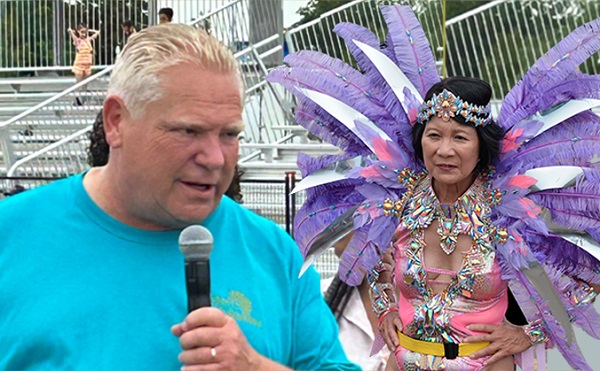
“Thank you to those so often forgotten by the politics of our city who made this movement their own. I speak of Yemeni Bodega owners and Mexican abuelas, Senegalese taxi drivers and Uzbek nurses, Trinidadian line cooks and Ethiopian aunties”.- new NYC mayor Zohran Mamdami
The new mayor’s effusive tribute to immigrants is very on-brand for the Woke Left. Coming as it did on the week where Canadians’ remembered the sacrifice of the over one hundred thousand who “died to make the world free” in WWI, WWII and Korea— even as their homes are squeezed between hereditary land rights and Justin Trudeau’s holiday camp.
For Boomers that battle sacrifice has underpinned their lifestyle for most of the past 75 years or so. No matter how cynical or hipster the Boomer, the phrase “They died to make the world free” was the Gorilla Glue holding Western civilizations together. Whether you agreed or not, you acknowledged its pre-eminence in society.
Those who annually recall family members who’d made the ultimate sacrifice underscore that “they died to make the world free” is foundational in their national myth making. For example, our younger son placed roses on my uncle’s grave in the Commonwealth war cemetery near Hanover, Germany. He then delivered the petals to his grandmother to acknowledge the loss of her brother.

These rituals of sacrifice were everywhere till the early decades of the twenty-first century when the demographics of declining birth rates in the West combined with aggressive immigration— both sanctioned and illegal— to create the Beirut described by mayor Mandami upon election. He was talking about NYC, but it could have been Toronto, Montreal or Vancouver. But you are free to ask what freedom means in this context.
North America in particular has long encouraged immigration. It was typically combined with assimilation in the doctrines used by governments of the day. People from around the globe arrived in the West and aspired to the cultural and financial modes they discovered. For one young Ukrainian boy we knew the figure of Frank Mahovlich, son of Croatian immigrants, on the Toronto Maple Leafs was proof that he could belong in his new society.
But somewhere along the way the suicidal empathy of progressives— combined with a need for low-income workers for corporations— loosened the expectations for those arriving in the West. In Canada, prime minster Justin Trudeau adopted Yan Martel’s diversity model of Canada as a travellers’ hotel. No longer would newcomers need to assimilate.
They could live side-by-side with ancestors of original inhabitants while still recreating their former homelands. In time the bureaucracy— and revenge of the cradle— would replace the cranky white people with a more malleable electorate. It was Replacement Theory.
The Canadian boys going over the top at Vimy or taking off in their Lancaster bombers would never have foreseen this as they risked their lives. They couldn’t countenance the people they’d fought for throwing away their sacrifice on a pandering scheme like DEI (diversity, equality, inclusion) which replaced merit with settler guilt in hiring decisions.
When government admonitions to accept their societal revolution failed to produce enough newcomer guilt, social media filled the gap. Remember the drowned Syrian boy on the beach in 2015? The uproar about Canada’s immigration policies helped unseat Steven Harper and install a trust-fund puppet in the PMO. And it opened the floodgates that sent Canada from 35 million to 42.5 population in a decade.
As Mark Steyn observes, “Winston Churchill said we shall fight them on the beaches; his grandson Rupert Soames set up the highly lucrative business model whereby we welcome them on the beaches …and then usher them to taxpayer-funded four-star hotels with three meals a day and complimentary cellphone. That’s the story of the post-war west in three generations of one family.”
Recent reports show that many top American corporations are moving away from DEI back to merit-based hiring. But Canada’s government, led by its Woke academic and culture sectors, remains stubbornly fixed on the DEI model. That obsession keeps the corporate side from emulating their American counterparts.
The tell that DEI is far from dead can be seen in how the advertising world has doubled down on the orthodoxy of majority male whites bad/ everyone else good. In what is clearly a political, not profitable approach, minorities, mixed-race couples and women are featured in commercials in numbers far disproportionate to their percentage of the population.
A blend of LGBTQ and Rousseau’s The Noble Savage has produced The Church Lady come to the 2020s. Upper-class blacks are portrayed as authority figures while white males are hillbilly figures of ridicule. This is not to placate those communities but to assuage the guilt felt by educated white liberals.
Mixed-race commercials now mandate that virtually no same-race figures be allowed to be paired on-camera. (Having the ironic effect of white liberals telling the minorities they worship that they are not worthwhile unless in combination with the evil settler demographic.)

It’s the same in movies and TV which used to complain about cultural appropriation but now suddenly place racial and gender-inappropriate actors in period roles that are clearly specific to whites and males. For example, Netflix’s new series Death by Lightning is set in Chicago, 1880 – and this foreground establishing scene pops up.:
•an Asian woman,
•two Black men,
•and a one-legged man
-
all walking together. @StutteringCraig estimates the odds of this DEI dream at roughly 1 in 640,000. No matter. Authenticity is so yesterday.
The DEI obsession has pilled over into traditional Remembrance Day ceremonies that were marred by land acknowledgements and slavery references (slavery was banned in Canada 45 years before it became a nation.) Which led to CBC running a story on the Palestinian flag being raised at Toronto city hall on Remembrance Day.
In B.C. premier David Eby has declared that Canada now needs a power-sharing with the Cowichan and their confederates. American politics is also loath to give up their DEI dogma. In one real-life example leftist radio host Stephanie Miller kissed the feet of unhinged Democrat Rep. Jasmine Crockett. “Why, yes I DID kiss the sneakers of @JasmineForUS and I DO worship the ground she walks on! And she was LOVELY about it!” The laces fetishists think this performative theatre will always be thus. It won’t.

“The Venetian Republic lasted 1,100 years – and ninety-nine per cent of North Americans have never heard of it. But, on present demographic and fiscal trends, that’s four times longer than the United States is likely to make it,” Steyn observes.
“Walk around New York: The Yemeni-Mexican-Senegalese-Uzbek-Trinidadian-Ethiopians are the future. And you’re not.”
Bruce Dowbiggin @dowbboy is the editor of Not The Public Broadcaster A two-time winner of the Gemini Award as Canada’s top television sports broadcaster, his new book Deal With It: The Trades That Stunned The NHL And Changed hockey is now available on Amazon. Inexact Science: The Six Most Compelling Draft Years In NHL History, his previous book with his son Evan, was voted the seventh-best professional hockey book of all time by bookauthority.org . His 2004 book Money Players was voted sixth best on the same list, and is available via brucedowbigginbooks.ca.
Energy
Canada’s oilpatch shows strength amid global oil shakeup
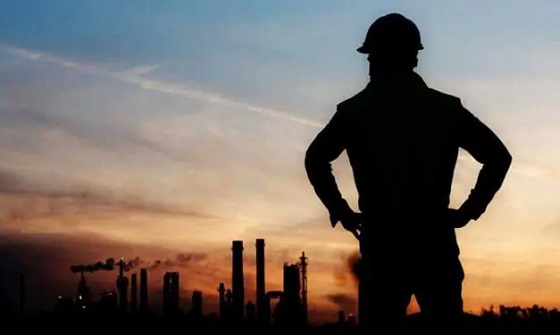
This article supplied by Troy Media.
Global oil markets are stumbling under too much supply and too little demand but Canada’s energy sector is managing to hold its own
Oil prices are sliding under the weight of global oversupply and weakening demand, but Canada’s oilpatch is holding steady—perhaps even thriving—as others flounder.
Crude is piling up in tankers, major producers are flooding the system, and demand is fading fast. According to a Windward report cited by Oilprice.com, the amount of oil held in floating storage—tankers sitting offshore waiting for buyers —has hit record highs. Sanctions on Russian and Iranian crude have sidelined entire fleets. Meanwhile, Middle East cargoes continue to pour in, keeping global supply bloated.
Gunvor CEO Torbjorn Tornqvist called the scale “unprecedented,” warning the market would be flooded overnight if sanctions against Russian and Iran were lifted.
And there’s more coming. U.S. crude production has hit a new record of 13.8 million barrels per day in August. And China’s Changqing oilfield just surpassed 20 million tonnes in cumulative output, and national totals have topped 400 million tonnes of oil equivalent this year. More barrels. More pressure. Less price support.
At the same time, demand is slipping. U.S. gasoline use is down. Global shipping activity has slowed. JPMorgan just trimmed its 2025 oil demand forecast by 300,000 barrels per day. China’s manufacturing sector shrank for the seventh month in a row.
Japan’s purchasing index dropped to an 18-month low. And recession fears are back in the headlines.
OPEC+ tried to calm the chaos by announcing a modest increase in output this December, with a pause on future hikes. But the move didn’t move markets. Then Saudi Arabia cut its selling prices to Asia, a clear signal that the kingdom sees weak demand ahead.
In short, it’s messy out there. But not everywhere.
Amid this global downturn, Canada’s energy sector stands out for one rare quality: resilience. While other producers are scaling back or scrambling to adapt, Canada’s oilpatch is quietly outperforming.
A recent CBC News report highlighted the sector’s staying power and why it’s better positioned than its U.S. counterparts. “The companies that have survived here are the companies that have been able to adapt,” said Patrick O’Rourke, managing director at ATB Capital Markets. “It’s effectively Darwinism.”
It’s also smart design. Canada’s oilsands—primarily in Alberta—are expensive to build but cheap to run. Once the upfront costs are covered, producers can keep pumping for decades with relatively low reinvestment. That means even in a
downturn, output stays strong.
Dane Gregoris of Enverus says Canada’s conventional sector is holding up better than the U.S. shale patch. Why? Canadian oil producers operate more efficiently, with fewer legal and logistical barriers tied to land access and ownership than their U.S. shale counterparts. They also benefit from lower operating costs and are less dependent on relentless drilling just to maintain output.
And now, they finally have a way to get more oil out.
The long-delayed Trans Mountain pipeline expansion is finally complete. It delivers Alberta crude to B.C.’s tidewater and, from there, to Asian markets. That access, once a significant limitation for Canadian producers, is now a strategic advantage. It’s already helping offset lower global prices.
Canada’s energy sector also benefits from long-life assets, slow decline rates and political stability. We have a reputation for responsible regulation, but that same system can slow development and limit how quickly we respond to shifting global demand. We can offer a stable, secure supply but only if infrastructure and regulatory hurdles don’t block access to it.
And for Canadians, that matters. Oil prices don’t just fuel industry headlines; they shape provincial and national budgets, drive investment and underpin jobs across the country. Most producers around the world are bracing for pain but Canada may be bracing for opportunity to expand its presence in Asian markets, secure long-term export contracts and position itself as a reliable supplier in a turbulent global landscape.
None of this means Canada is immune. If demand collapses or sanctions lift, prices could sink further. But in a volatile global landscape, Canada isn’t scrambling—it’s competing.
While others slash forecasts, shut wells or hope for an OPEC rescue, Canada’s energy producers are doing something rare in today’s oil market: holding the line.
Toronto-based Rashid Husain Syed is a highly regarded analyst specializing in energy and politics, particularly in the Middle East. In addition to his contributions to local and international newspapers, Rashid frequently lends his expertise as a speaker at global conferences. Organizations such as the Department of Energy in Washington and the International Energy Agency in Paris have sought his insights on global energy matters.
Troy Media empowers Canadian community news outlets by providing independent, insightful analysis and commentary. Our mission is to support local media in helping Canadians stay informed and engaged by delivering reliable content that strengthens community connections and deepens understanding across the country
-

 Business2 days ago
Business2 days agoCarney shrugs off debt problem with more borrowing
-
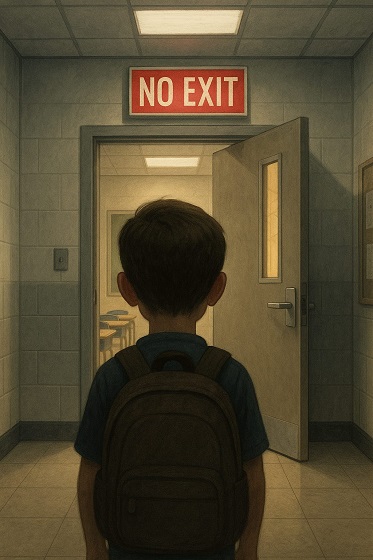
 Alberta2 days ago
Alberta2 days agoWhen Teachers Say Your Child Has Nowhere Else to Go
-

 Automotive2 days ago
Automotive2 days agoThe high price of green virtue
-

 Addictions1 day ago
Addictions1 day agoCanada is divided on the drug crisis—so are its doctors
-
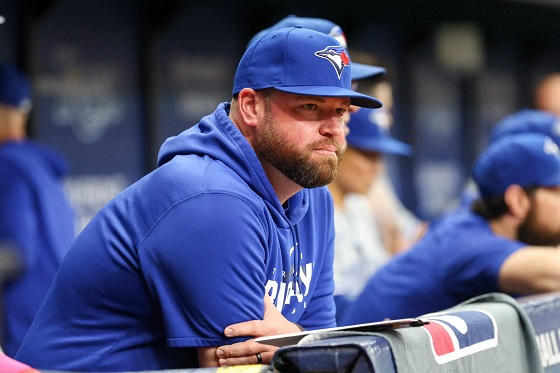
 Bruce Dowbiggin1 day ago
Bruce Dowbiggin1 day agoMaintenance Mania: Since When Did Pro Athletes Get So Fragile?
-

 Daily Caller2 days ago
Daily Caller2 days agoProtesters Storm Elite Climate Summit In Chaotic Scene
-

 MAiD2 days ago
MAiD2 days agoQuebec has the highest euthanasia rate in the world at 7.4% of total deaths
-
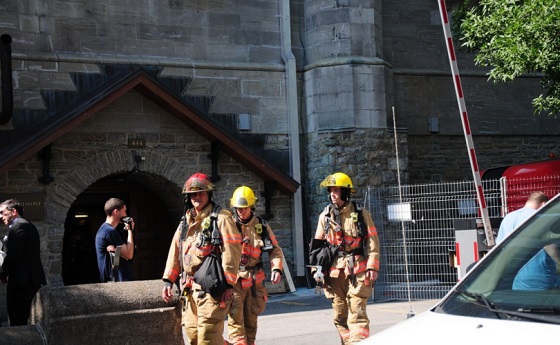
 National1 day ago
National1 day agoConservative bill would increase penalties for attacks on places of worship in Canada








